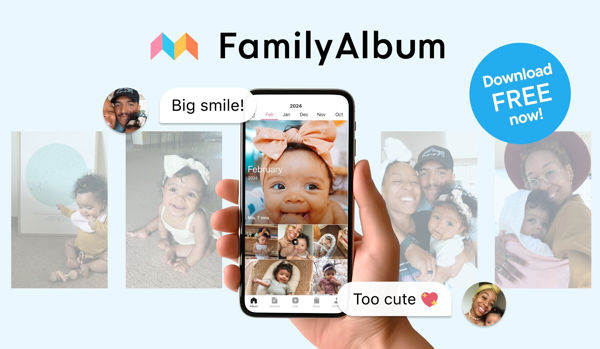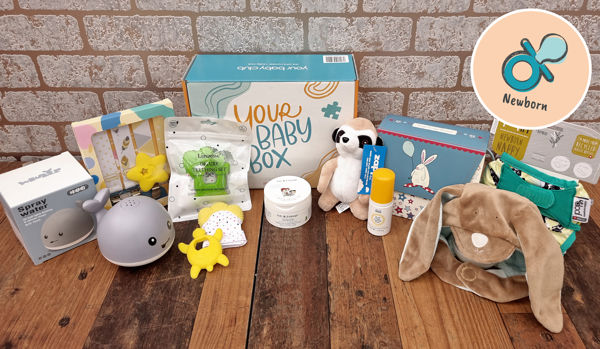You’ve just had a positive pregnancy test, Congratulations.
But now the fun begins, from the moment you get those 2 pink lines, your whole world changes, you suddenly have this overprotective feeling of something you haven’t even met yet, and that is completely normal. It can also be a very scary time, you have a million and one questions, but who can you talk to? Do you tell family or friends? Do you ring the doctor? So many answers and to be honest it’s completely up to you what your next steps are.
When I first found out that we were expecting I google what to do when you find out you’re pregnant, as I didn’t feel like I needed to go to the doctors as I was feeling fine and it didn’t come as a shock to us. The answer I stumbled upon was the online antenatal Self-referral form.
The form was easy to complete, it wanted to know, your name, Date of Birth, where your closest hospital was, Your NHS number if you knew it, when your last period was, your GP and address and if you had, had other pregnancies, and it’s very straight forward.
No, you have the agonising wait to hear back, as I was only a minimum of 3 weeks I didn’t hear back from the antenatal clinic for what seemed like forever but in fact, it was about 4 weeks, in the meantime, I began to take Pregnacare, as again I looked at good old google as to what pregnancy supplements to take, you can always ring your doctor or speak to your local pharmacy, but this worked for me.
The First Appointment
So, when I received my first letter, that made it feel a lot more real for me and my husband. The appointment was booked in for when I had estimated that I would be about 8 – 10 weeks, this is called your booking in appointment, and this normally is your longest appointment as you will be talking through everything you need to know regarding what to expect over the next 9 months.
The midwife will take your blood pressure, height, dip your urine which is also referred to as a Mid-stream urine test (M.S.U). They will also ask personal questions about yourself, the father, and both immediate family backgrounds, they will then give you a sort of score so that they know if your pregnancy is considered low or high risk and give you an estimated due date but this will be more specific when you have your 12-week scan.
At the first midwife appointment, you will also have blood taken, which is completely normal, they have to get your blood group as if you’re a Rhesus negative blood group then you will have to be given an anti-D injection, but we will come back to that.
They will also test for:
- Anti bodies
- HB (Diabetes)
- Haemoglobinopathies - the medical term for a group of blood disorders and diseases that affect red blood cells.
- Hepatitis B
- HIV
- Syphilis
- Chlamydia (If under 25)
Other information they will go through with you are, the option to have the Down’s syndrome test and the screening for Patau’s/Edwards Syndrome, these blood tests will be done at your 12-week appointment.
So A brief summary of your first appointment (Booking in) 8-10 weeks.
- Given a booking in leaflet pack
- Full antenatal risk assessment
- Antenatal care and place of birth discussed
- Assessment of vulnerability issues
- Routine enquiry
- Blood pressure
- Urinalysis
- Body mass index.
- 36-week leaflet (Labour pack)
- Measure your bump
- Blood pressure
- Urinalysis
- Feel for baby’s position
- Be weighed
- MRSA screening.
12 Weeks In
Your next appointment is more than likely going to be your 12-week scan (your first scan also known as your dating scan) this can be any time between week 11 and 13+6, this is to validate your pregnancy, give you a due date and also to have your screening blood test. It is very exciting having your first scan, but also a very scary time, the first time you see that little blob on the screen will make the last 12 week wait worth it, I promise.
You’ve reached 12 weeks!!!! Now you can shout it from the rooftops, or at least that’s what I wanted to do if I had the energy. You’re also a third of the way through your pregnancy and onto the 2nd trimester.
Now every appointment you MUST take a urine sample, or at least be able to do a wee when you get to the appointment, this is because at every appointment the midwife will want to dip your urine as part of the Urinalysis.
A quick urinalysis at each prenatal visit gives your midwife a heads-up if you potentially have a condition that requires treatment. Urine tests during pregnancy look for the following:
- Diabetes: High levels of glucose (or sugar) in your urine may indicate pre-existing type 2 diabetes (if it hasn't already been diagnosed) or, later on in pregnancy, gestational diabetes (GD or GDM). Gestational diabetes is also tested for with a glucose screening between weeks 24 and 28 of pregnancy.
- Preeclampsia: Protein in your urine is sometimes a sign of preeclampsia, or pregnancy-induced high blood pressure.
- A urinary tract infection (UTI): Red or white blood cells in your urine may be a sign of a UTI.
16-18 Weeks
So onto your next appointment, unfortunately, this is another wait, usually, this is booked in between 16 and 18 weeks and this is when you get to hear those first heartbeats through the Doppler. In-between the 12-week and 16-week appointment you should have received your screening results, which will be sent to you directly, remember to take your letter with you to this midwife appointment, in case they need to see it.
They will also check your blood pressure and look over your booking in bloods and to confirm your blood group. If you are a Rhesus negative blood test you will now be given the information regarding what it means and when you will need to have the Anti-D injection (28 weeks)
If you are a rhesus negative blood type your blood will be checked for the antibodies (known as anti-D antibodies) that destroy positive red blood cells. You may have become exposed to them during pregnancy if your baby has positive blood. If no antibodies are found, your blood will be checked again at 28 weeks of pregnancy and you'll be offered an injection of a medication called anti-D immunoglobulin to reduce the risk of your baby developing rhesus disease. Please talk to your midwife with any questions or concerns.
So a rundown of what will happen at this appointment:
- Review screening tests
- Offer Serum screening between 14-20 weeks only if required (this is offered if you are at a higher risk of chromosomal disorders, such as Down syndrome (trisomy 21) or Edwards syndrome (trisomy 18), or open neural tube defects, such as spina bifida)
- Blood pressure
- Urinalysis
- Offer the whooping cough vaccination (this is usually done at your GP surgery and you are to make this appointment after you have reached the 16-week mark.)
Now, this appointment is very exciting for a number of reasons:
- You are now considered halfway through your pregnancy
- You get to have your 20-week scan, and who doesn’t get excited to see your baby again
- If you wanted to, you could find out the gender of your baby.
- You are probably noticing more movements from the baby.
This appointment can also be referred to as the Anatomy Scan, this scan is usually a little longer than the 12-week scan as the Sonographer will be looking for and taking important measurements, this is to make sure that baby is developing well, they will also look for where your placenta is positioned (Anterior, Posterior, high or low) this also can determine if you need more scans (If the placenta is positioned low or covering the way out this will need to be monitored.) If you have an Anterior placenta, baby’s movements may be a little less prominent and it is very important to keep a track of baby’s movements.
If this is your first baby then you will have a 25-week appointment, the midwife will begin to measure your bump (Fundal height) this is so that they can monitor how quickly your bump is growing, this measurement will then be plotted on to a growth chart, if there is any concerns regarding the growth of your bump, you will then be asked to have a growth scan to get more accurate measurements of the baby. You will also get to hear the baby’s heartbeat and to be honest this is the best part of the appointments.
Also, the midwife will check to see if you need to have a GTT (Glucose Tolerance Test) this is usually offered to women that have a high BMI or at a high chance of developing gestational diabetes. (Please talk to your midwife with regards to any questions or concerns)
At this appointment, the midwife will ask you if you have decided whether you are going to breast or bottle-feed, they will then provide you with the relevant information, (please remember that there is NO right or wrong answer, a fed baby is a happy baby)
25-week checks are:
- Measurement of bump
- Blood pressure
- Urinalysis
- MAT B1 form (to give to your employer)
You’re getting close to meeting your new bundle, you’ve reached 28 weeks and at your next appointment, the closer you get to the arrival of meeting your baby, the more appointments you will have.
28 Weeks
So at your 28-week appointment, you get to hear baby’s heartbeat again, the midwife will ask about baby’s movements and if you have noticed at patterns, please please, please keep a track of baby’s movements and any changes please contact your midwife STRAIGHT away.
If you are having to have the Anti-D injection then you will be given the blood test forms as you will need to have a blood test a few days before having the injection, and have a full blood count whether or not you are having the Anti-D injection. 28-week checks are:
- Measurement of bump
- Blood pressure
- Urinalysis
- MAT B1 form (if haven’t previously been given)
At 31 weeks you will have an appointment if this is your first baby.
This is usually a quick check-up, and consist of:
Antenatal breastfeeding pack
Measurement of bump
Blood pressure
Urinalysis
When I reach this milestone, I am offered my first growth scan, this is due to my first baby being a small birth weight, where she was only reaching the 2nd centile and my second baby was only on the 18th centile when born. So now being on my 3rd pregnancy I will be having at least 3 growth scans to make sure that baby is growing well, and so far at the moment our 3rd little girl is on the 55th centile, so we have our toes and fingers crossed that he can continue to grow along this line on our growth chart. Usually, after your growth scan, you would have either a midwife or consultant appointment, this is just normal procedure, so that they can make a health care plan if needed, my follow up appointment was for the following week, as the baby is looking well and growing as she should be. (Of course, these are not 100% accurate and can only give you an estimate of how the baby is progressing)
34 Weeks
Ok so your next midwife appointment will be around the 34-week mark, this appointment is when you may want to start thinking about your birthing plan, where you would like to give birth, who you want to have as your birthing partners and what sort of birth would you like? Waterbirth, home birth, hypnotherapy birth etc. Talk your options through with your midwife. This would also be a good time to talk through pain relief, do you want a natural birth? Do you want to have an epidural or would you rather not? Please bear in mind that this is only a plan, and labour sometimes doesn’t stick to a plan. Anything could happen on the day, and trust me all you want is your baby coming out as healthy as possible, so don’t think of yourself as a failure if you can’t stick to your birthing plan, the most important thing is that you and baby are safe and healthy.
So if all well and good this appointment will contain the usual:
Measure your bump
Blood pressure
Complete a birthing plan (If wanted)
Urinalysis
36 Weeks
36 weeks, yes you are so close, you can do this, you may feel uncomfortable at this stage, but it is so important that you are tracking you baby’s movements and trying to get as much rest as possible. The arrival of your baby is almost there.
At this appointment the midwife will feel for which position baby is in and if the baby is breech they may offer an ECV referral (external cephalic version) This is when a healthcare professional, such as an obstetrician, tries to turn the baby into a head-down position by applying pressure on your abdomen. It's a safe procedure, although it can be a bit uncomfortable.
If the baby is head down, they will give you a score as to how far engaged you are, also known as baby’s head being ‘palpable’ this will give the midwife an indication of where baby’s head is.
Also at this appointment, you will be screened for MRSA, which has only recently been introduced, I don’t remember getting tested in my other 2 pregnancies. Talk to your midwife if you have any concerns.
A quick check of what you may expect from your 26-week appointment is:
My Second growth scan is also booked for around this week, to continue to monitor the baby’s growth.
If you aren’t scheduled for growth scans, and your bump is measuring 2cm smaller or bigger, then the midwife will refer you for a growth scan.
37 weeks and you have made it to be considered as FULL TERM!! You don’t generally have an appointment at this stage, but again please keep a track of baby’s movements and if you feel like they have changed in any way, please contact your midwife. Also if you have noticed anything out of the ordinary, not just movements, please contact your midwife.
Whenever you are in doubt, get checked out!!
38 Weeks
38 weeks, who would have thought it that 38 weeks ago you were getting those 2 little lines on a stick that you pee’d on, it feels like you have been waiting an eternity to meet your little one, but literally at any time now, the baby could be making their appearance.
So at this appointment, they will continue to check all of the usual, and they may internally examine you if you had any signs that you may have lost your mucus plug or if you think that your waters have broken.
If all being well then the usual check-ups are:
Measure your bump
Blood pressure
Urinalysis
40 Weeks
40 Weeks!!! You made it! If the baby hasn’t arrived yet then you may be offered a Stretch and sweep at your 40-week appointment, or they may book you in for one.
Again, at this appointment the midwife may internally examine you, to see if you are dilated or not, they will again give you a sort of score, if they ‘score’ 4cm and more then labour is imminent!!!
So a few other checks they will do are:
- Measuring bump
- Blood pressure
- Urinalysis
If the baby is just too comfy cooking away you may be offered an induction of labour if the stretch and sweep is unsuccessful.
So there you have it, the appointment, scans and tests that you may experience in pregnancy. Please remember that these are only a guideline, and every hospital and pregnancy is different. Please always talk to your midwife or doctor if you have any concerns and questions.
Good luck to you, it’s all worth it in the end.










